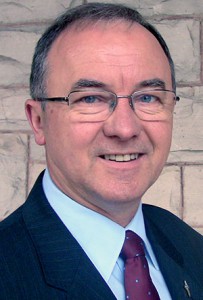PHILIPPINES – The afternoon of the third day of the International Lutheran Council’s (ILC) 2025 World Conference featured two panels of presenters speaking on issues arising in the Latin American and African contexts.
Migration in Latin America
Speakers for the Latin America Regional Focus included Rev. Dr. Sergio Schelske, Director of Seminario Concordia in Argentina; President Eduardo Flores of the Lutheran Church of Venezuela (ILV); President Omar Martinez Garza of the Lutheran Synod of Mexico (SLM); and President Gerardo Omar Kinas of the Confessional Lutheran Church of Chile (ILC-Chile).
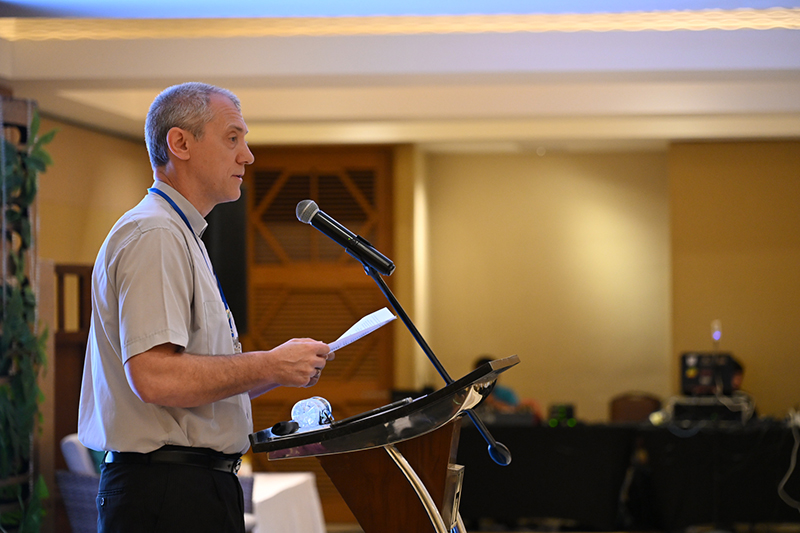
Dr. Schelske introduced the region’s topic, which was immigration and migration in Latin America. He noted that the theme arose out of the ILC’s Latin America Regional Conference which was held in Bolivia in 2024. Migration is a major issue in Latin America, Dr. Schelske said, as the region “accounts for some 14.8 million migrants, both internally (between countries in the region) and externally (beyond the region)”—a situation that has created “a challenge for our churches in terms of pastoral care.”
Dr. Schelske explored the causes of migration in the region, the toll it takes on migrants themselves, the theme of migration in Scripture, and the image of the Church as “a community on the move.” This set the stage for a theological response to issues like xenophobia (“a negative and fearful reaction to the strange”) and oikophobia (“a rejection of social integration” by immigrants). “To both, the church has a message to share,” Dr. Schelske said: “Confront and forgive (Law and Gospel).” The church is called to minister to both extremes, he said, because “her message is one of reconciliation… because the Lord Jesus is mediator and reconciler.”
After Dr. Schelske established the scale of the challenge, the other three presenters described the effects of migration and immigration on their own countries and church bodies.
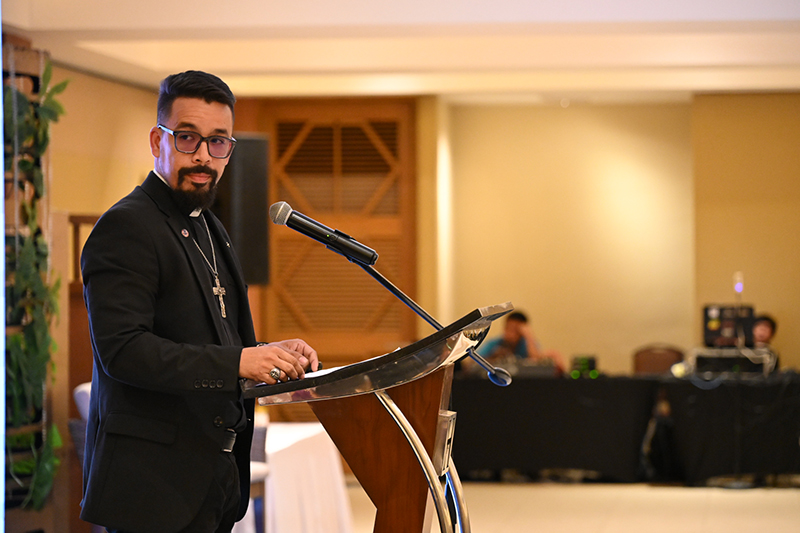
President Flores outlined the serious problems facing the nation of Venezuela, including “shortages of food, medicine, and basic services, along with insecurity and political repression.” These issues have led millions of Venezuelans to leave the country, resulting in “profound social, economic, and cultural implications,” including for the Lutheran church. There has been a “significant decrease in the number of members in Lutheran congregations,” mostly among young people and their families, President Flores noted. This not only impacts the spiritual life of those who leave, but it also causes serious issues with paying pastors and the financial sustainability of congregations.
The migration of Venezuelans out of the country has created challenges for other Latin American countries as the Venezuelans arrive. “We thank God for the open arms of all the churches in our region and outside, because in these hard times they have been the Good Samaritan of our history,” President Flores said, “even though we know that the reception of Venezuelan migrants presents a change to the dynamics of the churches that receive them.”
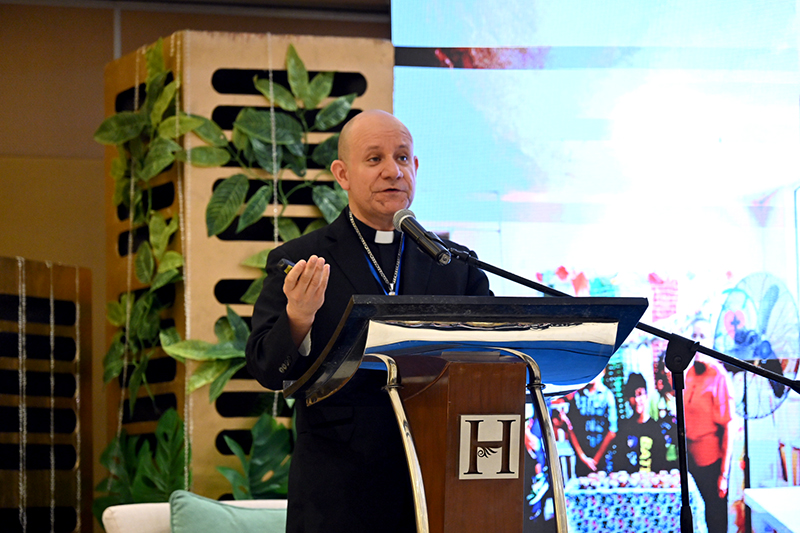
President Garza addressed the situation in Mexico, noting that the country’s location makes it is both a source and transit point for migrants trying to enter to the United States. Many of those who wish to enter the United States never will, meaning they must either leave for elsewhere or stay in Mexico. “In the last six years alone, 16 million people have entered Mexico, of which only ten million have crossed into the United States,” President Garza noted, “while at least six million have remained in Mexico.”
The sheer number of migrants in Mexico means they face many hardships, including a lack of food, lack of shelter, lack of guidance, threats from organized crime, and discrimination. In the face of these needs, the church in Mexico tries to assist those who are suffering. In Matamoros, for example, the church has a community kitchen to feed the hungry, with some who attend being migrants. Once a week, the church shares food with those in need alongside prayer and God’s Word. The Mexican church might “not have the resources to make a great impact on everyone,” President Garza says. “But we can make a difference in the life of the migrant that God places in our path at the church.” Some of these migrants go on to other places, but while they are present, the church shares the love of Jesus Christ with them.
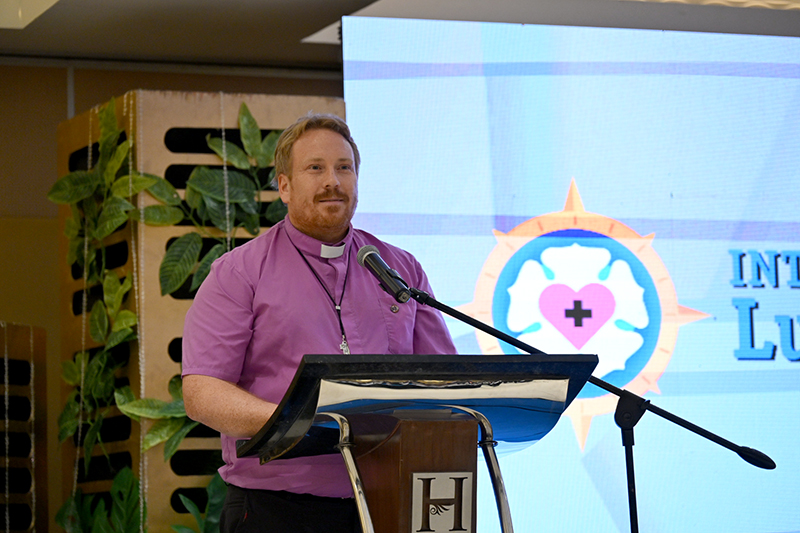
President Kinas discussed the situation in Chile, which has seen a great deal of immigration. This is because, he explained, Chile “does not consider any immigrant to be illegal,” instead just distinguishing between regular and irregular migration. As a result, “the country has been chosen as a focus for migration,” he said, especially from Haiti and Venezuela. The first waves of immigrants were welcomed, but as irregular migration continued “it created a crisis in the educational, health, judicial, and retirement systems.”
In this midst of these challenges, the Chilean church “has made different efforts to assist children and families involved in voluntary displacement from their home country.” This has included, for example, such activities as offering housing with onsite pastoral care; the provision of food to those in need; a migrant reception centre; and a legal clinic. The church has also provided assistance to people in Venezuela, where many migrants have come from. To date, the church has provided medicine for nearly 9,150 people in Venezuela.
As for the church in Chile, migration has resulted in a significant change in the makeup of its churches. “We estimate that 60 percent of our membership is Venezuelan,” President Kinas noted, and the church today has several Venezuelan pastors. “Currently we have programs that help migrants to be in the country regularly,” President Kinas said, “teaching obedience to the authorities and developing programs of mercy accompaniment.” The crisis is not yet abating, he noted, and the church does not have all the answers to the challenges of migration. “Yet God loves those who cannot give Him anything in return.”
Africa and the Challenge of Pentecostalism
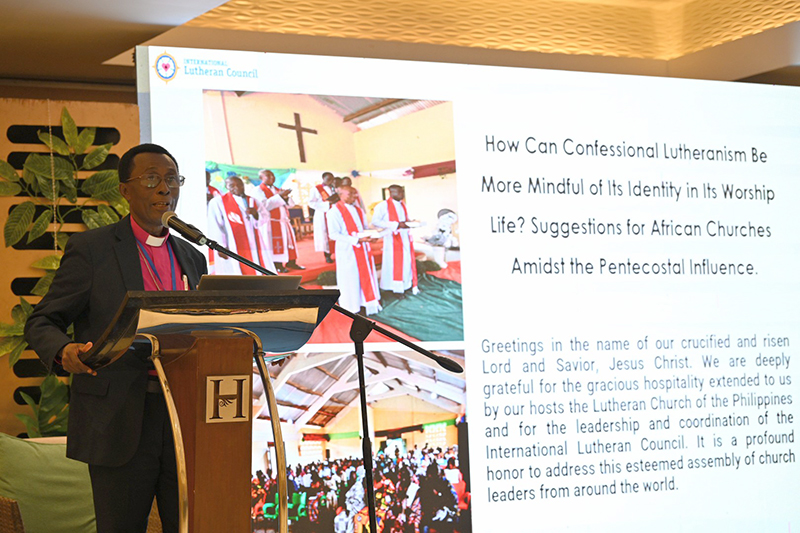
The afternoon continued with an Africa Regional Focus led by Bishop John Donkoh of the Evangelical Lutheran Church in Ghana (ELCG) and Rev. Dr. Joseph Tom Omolo, Principal of the Evangelical Lutheran Church in Kenya’s (ELCK) Neema Lutheran College.
Bishop Donkoh introduced the topic: “Pentecostalism’s Influence: What Can Be Done Liturgically?” Dr. Omolo then gave his presentation, outlining the history of the modern charismatic movement, before examining the movement’s spiritual forbears in Montanism and mysticism. Despite the incompatibility with Lutheran theology, Dr. Omolo noted, “many Lutherans—especially in Africa—unknowingly adopt Pentecostal worship styles.” The result is the replacement of “the external, objective means of grace with inward emotional experiences and charismatic gifts,” he noted. “This trend runs counter to biblical Christianity and Lutheran spirituality, which are rooted in the preached Word and the sacraments as the true means by which God nurtures faith.”
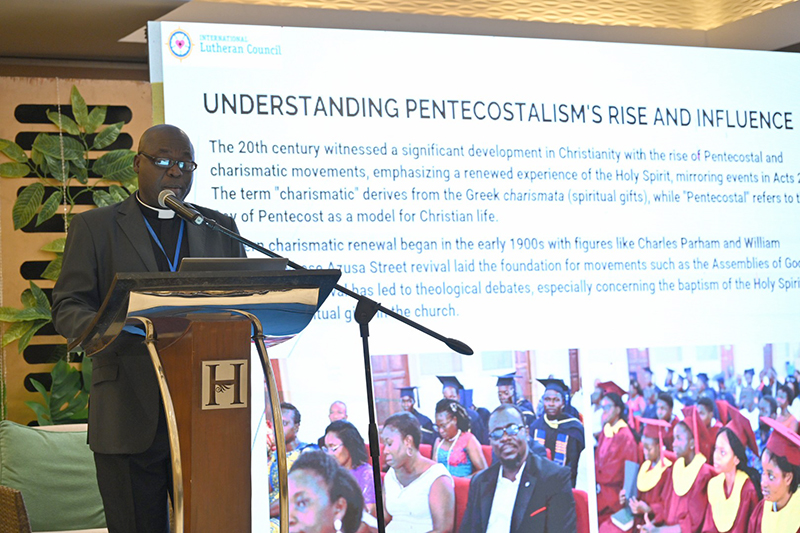
“To guard against these Pentecostal tendencies,” Dr. Omolo said, “it is crucial to reaffirm the true nature of Lutheran worship. Worship is not primarily about human action but God’s action: Gottesdienst—His service to us through Word and Sacrament.”
Bishop Donkoh carried the conversation forward, giving examples of specific challenges related to Pentecostal influence in the Ghanian context. In some congregations, he said, there is a temptation to copy the worship practices of charismatic churches. He noted, for example, a recent church building project where some members—without authorization—tried to convince the builders to incorporate a platform for drums in the front of the church.
The rise of such “liturgical inconsistencies” can lead to a “gradual dilution—and, in some cases, loss—of our distinctly Lutheran identity,” he argued. “But the true marks of the Church are the Word of God and the Sacraments,” he continued. “Anything short of that is not the Church.”
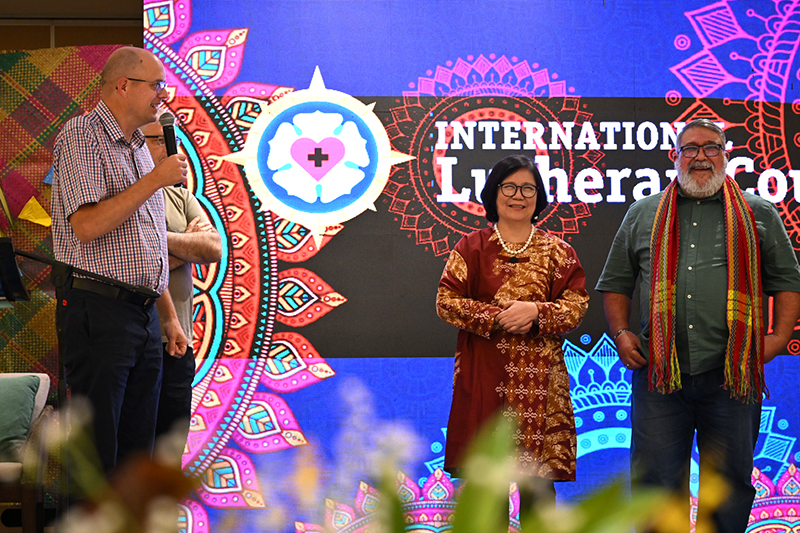
The afternoon closed with a service of Responsive Prayer, led by Concordia Publishing House’s (CPH) Rev. Dr. Jacob Corzine.
At supper, members enjoyed a “Filipino Fiesta Night Reception” by members of the Lutheran Church in the Philippines (LCP), complete with songs and dance. The LCP also presented delegates with a gift from the Philippines.
During the event, ILC Chairman Juhana Pohjola and General Secretary Klaus Detlev Schulz formally expressed the ILC’s thanks to President Antonio del Rio Reyes and Arlene Reyes for their work hosting the conference.
Delegates also received complementary access to the Lutheran Study Bible app as a gift from Concordia Publishing House.
———————
For more news from the ILC’s 2025 World Conference, click here.

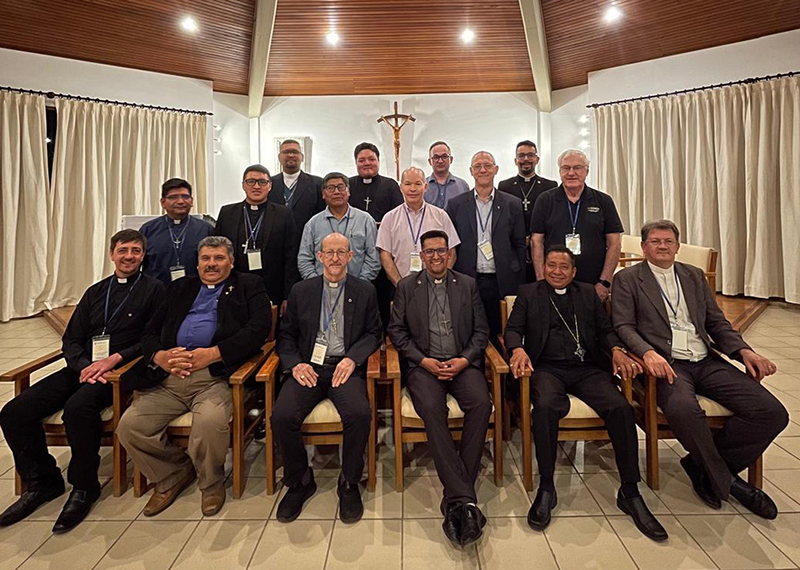
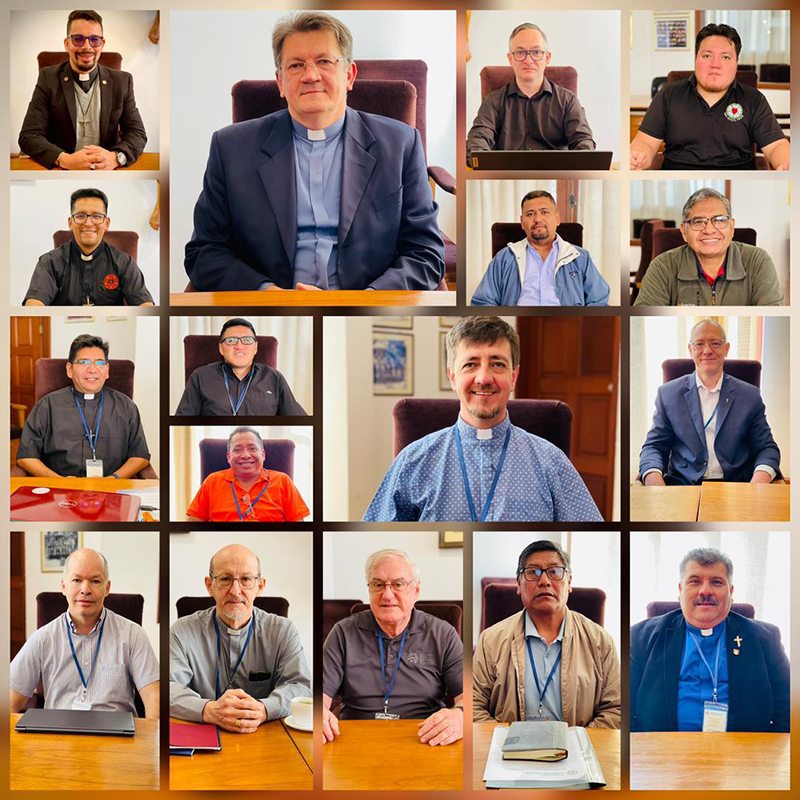
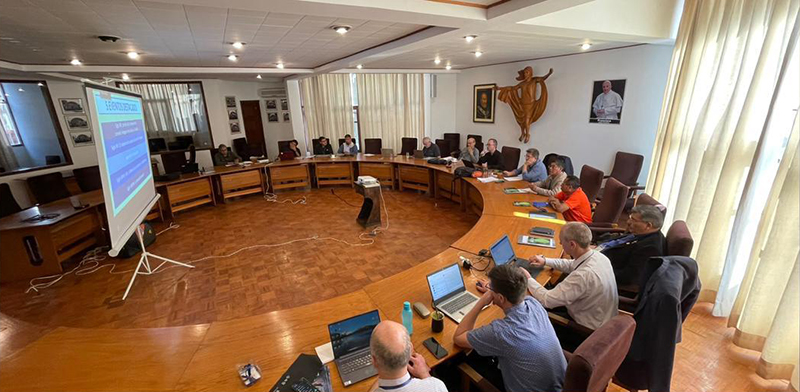
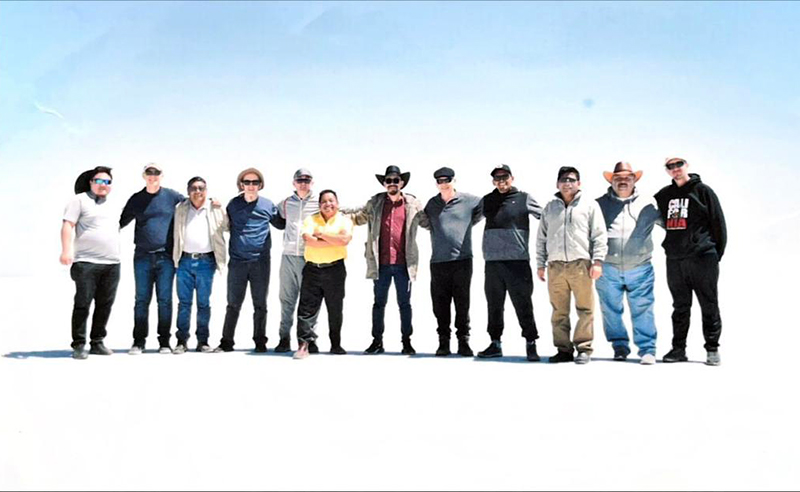
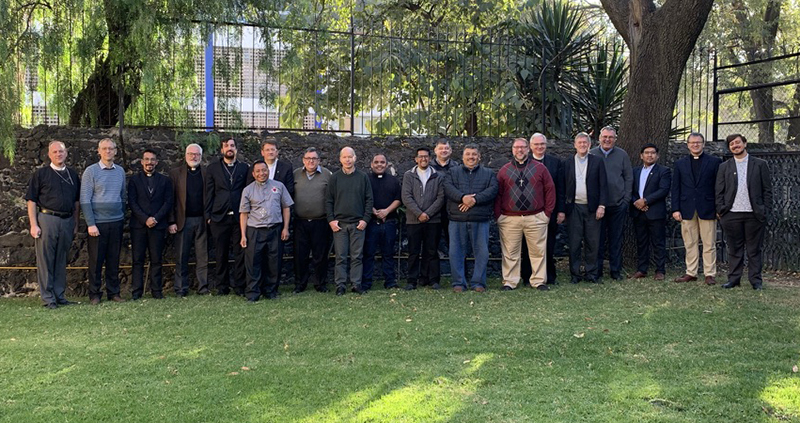
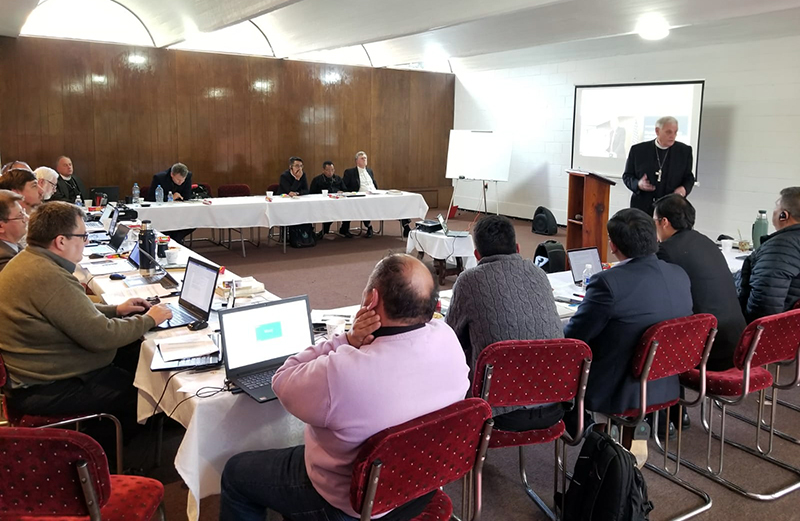
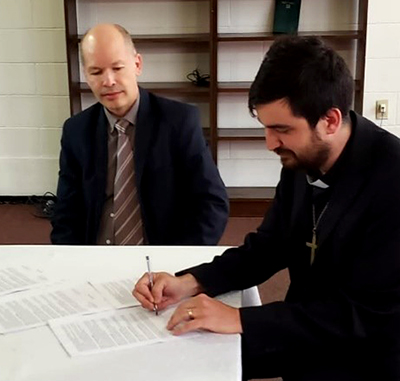
 WORLD – The International Lutheran Council (ILC) has announced updates to the representatives for the Latin American and European World Regions.
WORLD – The International Lutheran Council (ILC) has announced updates to the representatives for the Latin American and European World Regions.